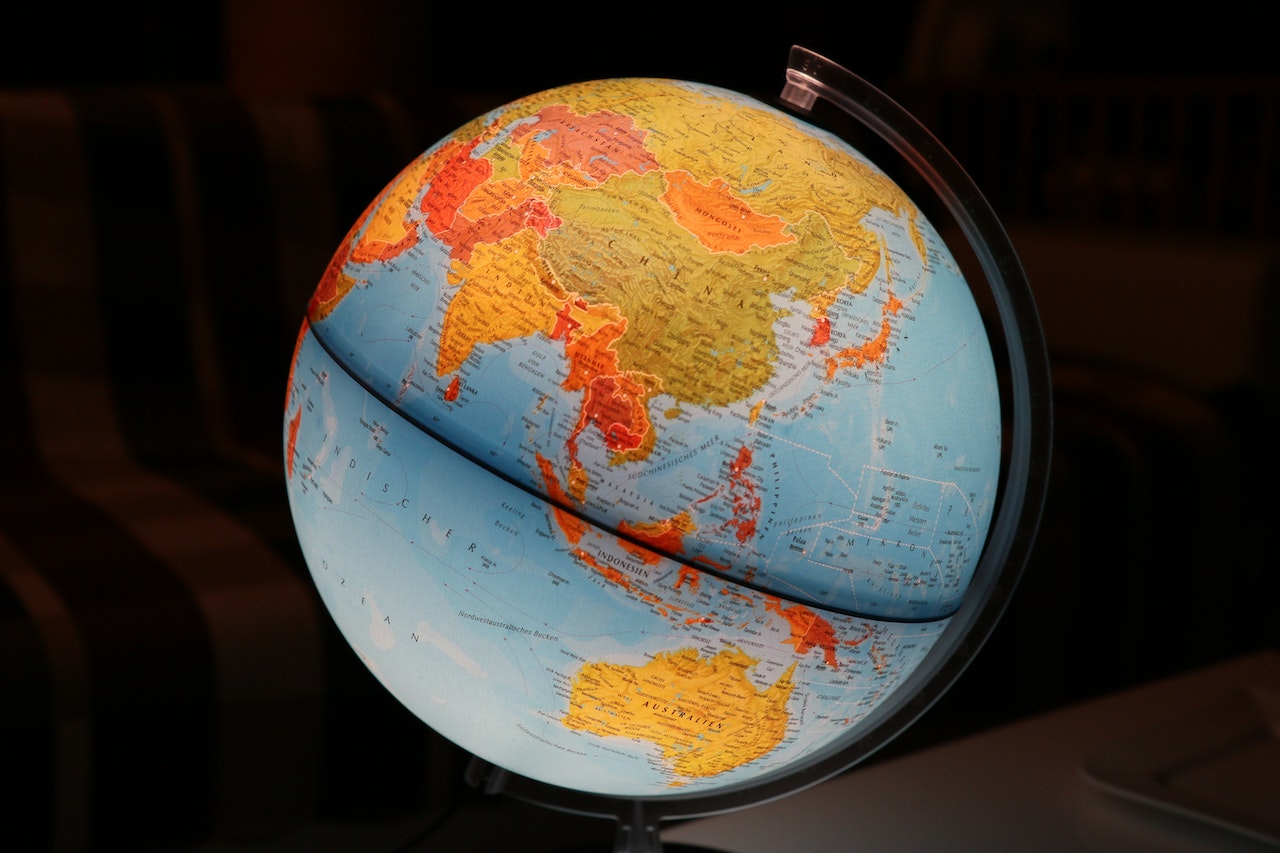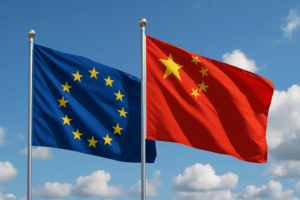After the ‘African’ COP27 in Sharm El-Sheikh, Egypt – all the texts of the decisions are available here -, what will be the decisive international appointments for international climate policy in 2023?
Next year, the confrontation moves eastwards, driven by the Indian G20, which starts today, 1 December, and the Japanese G7, starting at the beginning of the year. It will finally end with the COP28 in Dubai, from 30 November to 12 December 2023 in the United Arab Emirates, thus straddling the old continent and the Asian powers. In between, there will be a series of key appointments for the fate of global finance. But let us go in order.
The Indian G20
According to the Indian Presidency’s programme presentation by the chief negotiator or ‘Sherpa’ Shri Amitabh Kant, the Indian G20 aims to be ‘inclusive, ambitious, decisive and action-oriented’. Under the motto ‘Vasudhaiva Kutumbakam’ or ‘One Land, One Family, One Future’. The priorities India will focus on are: digital public goods and digital infrastructure; climate action, climate finance and technology collaborations; clean, sustainable, just, affordable and inclusive energy transition; accelerating progress on the Sustainable Development Goals; women-led development; and multilateral reforms.
The programme is ambitious and puts the climate challenge and reform of the multilateral system at the centre. At COP27, India spearheaded a proposal for a commitment to reduce all fossil fuels, not just coal as agreed at COP26 in Glasgow. Although the proposal was supported by more than 80 countries – including the Europeans – the Egyptian presidency preferred to ignore it. We will see if the G20 will be able to make a breakthrough on the need for a gradual exit from gas, oil and coal.
Another big topic will be the reform of the Multilateral Development Banks (MDBs). At the November 2022 summit in Bali, leaders invited the MDBs to discuss options for implementing the recommendations of the ‘Independent Review of Capital Adequacy Frameworks‘ and provide an update in spring 2023. This review could unlock up to EUR 1 trillion of new capital. The COP27 text goes in a similar direction by calling on ‘the shareholders of Multilateral Development Banks and International Financial Institutions to reform practices and priorities, align and scale funding, ensure streamlined access and mobilise climate finance from various sources, and encourages a new vision and appropriate operating model, channels and instruments that are fit for purpose to adequately address the global climate emergency, including the use of a full range of instruments, from grants to guarantees and non-debt instruments, taking into account debt burdens and addressing risk appetite, with the aim of substantially scaling up climate finance’. In addition, the countries call on MDBs to “contribute to significantly increase climate ambition by using the breadth of their policy and financial instruments to achieve greater results, including in mobilising private capital, and to ensure greater financial efficiency and maximise the use of existing concessional and venture capital vehicles to drive innovation and accelerate impact”.
International meetings on finance
In order to ground this financial reform agenda, it is important that financial institutions and their main shareholders: governments through their Finance Ministers and Central Bank Governors. Therefore, the spring and autumn meetings of the World Bank and the International Monetary Fund in April and October in Washington DC will be crucial to establish a change in the rules, mandates and incentives of the MDBs. In this regard, we have signed a policy paper, together with other international think tanks, for a series of tangible short-term actions revolving around five main objectives of World Bank reform.
But even more needs to be done. While MDB reform is an important building block, it will not be enough to mobilise the finance needed for climate action – which for the 2030 emission reduction targets of developing countries alone is estimated at $6 trillion. This is where Barbados Prime Minister Mia Mottley’s agenda comes into play through the Bridgetown Initiative. An initiative that found, at COP27, the support of French President Emmanuel Macron, who promised a high-level summit to discuss this proposal in June 2023.
There are several issues on the table besides the reform of the MDB. These include: the need to unlock emergency liquidity for multiple crises through USD 100 billion in Special Drawing Rights (SDRs), creating fiscal space in developing countries quickly and without disadvantageous terms; creating a larger loss and damage financing mechanism than just a fund; creating a global fund for zero-emission projects with loans on the capital markets, with guarantees to mobilise private financing; and innovative instruments such as debt-for-equity swaps, state contingent debt instruments and regional guarantee platforms.
The Japanese G7
The most developed countries, of which the G7 has historically been the spokesperson, will have the primary responsibility to use their power as majority shareholders to reform the MDBs. This is through the mandate they can provide to the MDBs by voting/seating on the boards of the banks themselves.
Another important action will be to support the energy transition of developing countries through ‘Just Transition Partnerships’, which allow the mobilisation of public and private funding for emerging economies. The partnership with Indonesia, in which Italy also participated, was launched in Bali. On that occasion, President Meloni stated that ‘Italy is proud to be part of the Just Energy Transition Partnership, an ambitious platform that will provide substantial financial resources and technical assistance to fuel Indonesia’s energy transition from fossil fuels to renewables’. Other platforms are expected to be launched, such as Vietnam, in which Italy is also expected to participate.
In addition, the G7 countries will have to demonstrate how they intend to decarbonise their electricity systems by 2035 as stipulated in the new target adopted in May 2022. This will be one of Italy’s biggest domestic challenges. At COP27 we presented preliminary considerations of an Italy to 2035 scenario, which will be followed by the publication of a dedicated technical scenario in the coming months. Energy security depends on the decarbonisation of the electricity sector, which means organising a rapid exit from gas for power generation.
COP28
And so we will arrive at COP28 in Dubai with finance and the issue of getting out of fossil fuels as the driving themes of 2023. On the latter we can certainly expect strong resistance both from governments of producing countries, led by Russia, Saudi Arabia and Iran, and from oil and gas companies. These are lobbying hard to delay the transition process, to offer ‘greenwashing’ solutions – the UN Secretary General’s new report on green projects is important in this respect – and to expand gas exploration and production despite the fact that this goes against all the recommendations of science and international analysts, including the International Energy Agency. Both it and the final text of COP27 (paragraph 13) recognise that the best way to deal with the current energy crisis is to prioritise renewables and energy efficiency to replace gas in electricity systems and people’s homes without the need for new fossil production and infrastructure. This is also true for Italy, as we have repeatedly shown in various analyses.
In the course of 2023, it will therefore be important to reflect on the role and strategy of ENI, Italy’s leading producer of energy from fossil fuels. At the moment, the signs are not encouraging. At COP27, ENI explicitly asked the European Investment Bank to review its energy policy, which excludes new fossil investments. The EIB’s response was clear: ‘absolutely not‘. Moreover, ENI is committed to investing the super profits generated by the energy crisis in a massive expansion in new exploration and production in the Mediterranean and Africa. This is riding on the idea of supply diversification and development in Africa, both of which are incompatible with both the science and the immediately available and cheaper clean alternatives. On this we will provide, through a new dedicated programme, independent analyses and tools for a more open, more informed and more fact-based public debate on the choices of Italy’s most important oil and gas company.







